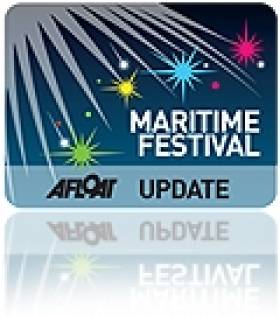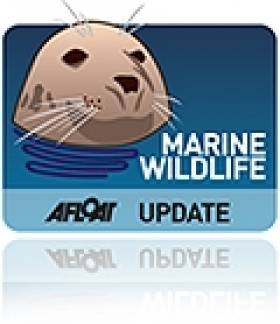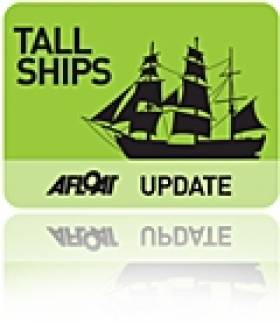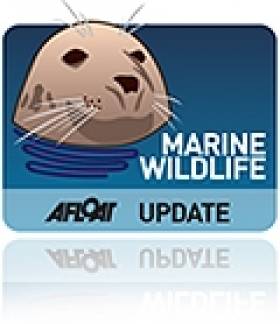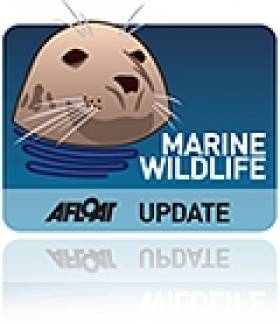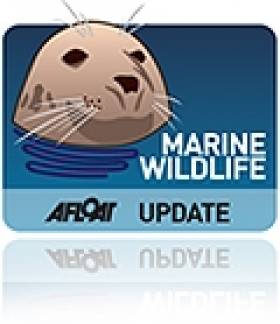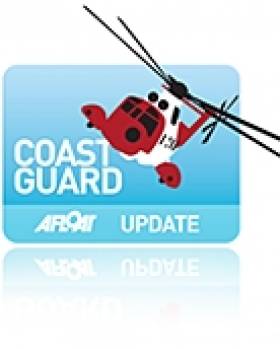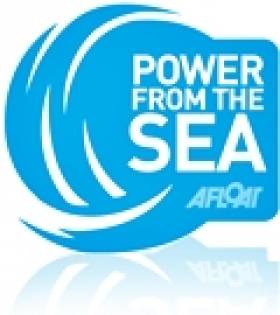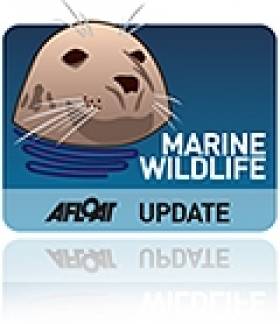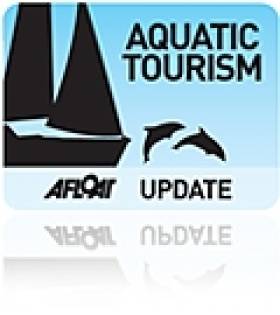Displaying items by tag: Scotland
Scottish Oyster Shucker to Compete in Galway World Championships
Son of oyster farmers Hugo and Judith Vajk of Caledonian Oysters, Angus won the Loch Fyne Scottish Oyster Opening Championships in Glasgow last month, beating a dozen other competitors including his father!
"I have been opening oysters since before I could walk," he quipped, as he accepted a prize plate from Virginia Sumsion, Marketing and Events Director of Loch Fyne Oysters. "I am thrilled to have won, and excited about going to the world championships, but it will be daunting being up against so many experts. I will be putting in a lot of speed practice this week!"
Part of his prize was a trip to Galway to enjoy the annual international oyster and seafood festival, but Angus had to wait for the organisers of the world competition to confirm that his opening time of 4 minutes 5 seconds for 30 oysters was good enough to allow him to compete there.
"Angus was a worthy winner and we are delighted to sponsor his entry in the worlds. We hope he will do well and bring the cup back home!" said Virginia Sumsion.
Seafood Scotland, which helped to organise the Scottish competition at the Glasgow Riverside Festival, also wishes Angus the very best of luck. "This is the first time ever that the world oyster opening championship has had a Scottish competitor, so it is an honour for Angus to fly the flag for his country," said Marketing Manger Clare Dixon.
Time Running Out for Scotland's Resident Killer Whales
Time may be running out for Scotland's only resident pod of killer whales, the Scotsman reports.
The four males and five females have been studied at their home in the west of Scotland by the Hebridean Whale and Dolphin Trust and the Irish Whale and Dolphin Group for almost 20 years.
The marine mammals have been sighted at various times since 1981 by members of the public in Scotland, Wales and Ireland.
But since 1992 the group - known as the West Coast Community - has failed to produce a single surviving calf.
Marine biologist Dr Andy Foote said: "It's probably too late to save this group. I do believe that they will become extinct in our lifetime which is very regrettable since not many people even know that such a distinctive group of killer whales exist just off our coast."
Dr Foote believes possible contaminants in the waters off Scotland's west coast could be one reason why the pod is not successfully breeding.
The Scotsman has more on the story HERE.
Celtic Mist Reaches Scotland, Ready for New Life
The yacht once owned by former Taoiseach Charles Haughey will return to Ireland next week for its new life as a marine research vessel after completing the first leg of the 2011 Tall Ships Races.
The 52-foot Celtic Mist, the only Irish entrant in this year's races, came "a respectable last in our class”, skipper Fiacc Ó Brolcháin told The Irish Times from Scotland.
As previously reported on Afloat.ie, the yacht will know be fitted out with scientific instruments after it was gifted by the Haughey family to the Irish Whale and Dolphin Group (IWDG) to support its conservation work.
Student On the Seas for Whale and Dolphin Survey
A mature student from the Galway Mayo Institute of Technology is taking part in the Irish Whale and Dolphin Group's Ship Surveys Programme.
Irish Weather Online reports that Enda McKeogh is on board the Marine Institute's research vessel Celtic Explorer off the west coast of Scotland, where he has already made a number of sightings of whales and dolphins.
He said: "I expected to be sea sick most of the time and not to see many cetaceans but this has proven not to be the case so far."
McKeogh is recording is sightings in a diary on the IWDG website HERE.
Fears for Pilot Whale Pod Headed for Ireland
The Irish Whale and Dolphin Group (IWDG) is on alert as a pod of pilot whales that narrowly avoided a mass stranding in Scotland heads south towards Ireland.
The situation has prompted fears of a repeat of last year's tragic beaching of 33 whales on an island off the Donegal coast.
Simon Berrow of the IWDG told The Guardian: "We're on standby to see if the pilot whales come to Ireland, and we're getting regular updates from our colleagues in the UK. So we're watching and waiting."
The Guardian has more on the story HERE.
Pilot Whales Avoid Mass Stranding in Scotland
Rescuers reports that a pod of around 60 pilot whales at risk of beaching in shallow waters off Scotland's Western Isles appear to be out of danger.
According to The Guardian, the whale pod alarmed conservationists by swmming into Loch Carnan in a remote part of South Uist last Thursday.
The whales have since moved into open water heading south, but Dave Jarvis of British Divers Marine Life Rescue said they were not yet in the clear, as the rocky coastline hosts a number of inlets and bays that could present dangers to the pod.
Some of the whales have injuries to their heads which are believed to be caused by striking the loch's jagged shoreline.
The Guardian has more on the story HERE.
British Coastguard Fears Loss of Choppers
The union representing coastguard staff in the UK has expressed its fears over the loss of air rescue services when a number of helicopters are transferred to Ireland next year.
Under CHC's €500m contract to provide search and rescue services for the Irish Coast Guard, four helicopters will be withdrawn from England and Scotland for redeployment in Ireland.
However, HeraldScotland reports that the Maritime and Coastguard Agency (MCA) has no plans to replace these helicopters, which separately service Scotland's Isle of Lewis and Shetland Islands as well as the Solent and Portland in England.
The recent collapse of the privatisation deal for UK search and rescue services has meant there is no new operator lined up to replace CHC.
Jeremy Gautrey of the PCS union said that the situation "has now potentially left the coastguard service stranded without the guarantee that it will have sufficient helicopters to carry out search-and-rescue operations when the current helicopters retire."
HeraldScotland has more on the story HERE.
Scotland To Host World's Biggest Tidal Power Array
Scotland's west coast will be home to the world's largest tidal power facility, it has been announced.
The £40 million (€45.9 million) 10MW tidal array, to be developed by ScottishPower Renewables in the Sound of Islay, will generate power for more than 5,000 homes.
Scottish Cabinet Secretary for Finance John Swinney, who signed off on the deal, described the project as "a milestone in the global development of tidal energy".
"Scotland's seas have unrivalled potential to generate green energy, create new, low carbon jobs, and bring billions of pounds of investment to Scotland," he said.
The project comes in tandem with the consultation process for the Scottish government's National Marine Plan, intended to highlight the best opportunities for investment across all marine industries.
Energy & Environmental Management has more on the story HERE.
Ireland Sees Largest Aggregation of Killer Whales
The Irish Whale and Dolphin Group (IWDG) has announced the largest aggregation of killer whales to date in Irish waters.
As many as a dozen killer whales, or orca, were spotted close to an Irish Naval Service vessel on patrol 30 miles off Tory Island in Co Donegal late last month.
According to Lt Cmdr Paddy Harkin of the LE Niamh, the killer whales were feeding among large shoals of mackerel that also attracted a large number of fishing vessels.
He added that the whales had apparently followed the mackerel from west of the Hebrides in north west Scotland, according to several fishing skippers - who placed their numbers at over 100.
The IWDG has more on the story (including photos) HERE.
New Marina Centre for Ballycastle
Work has begun on a new visitor services building at Ballycastle harbour as part of a £7.4 million (€8.6 million) marine tourism project for the nothern part of Ireland and western Scotland.
Moyle District Council is one of 20 partners involved in the Sail West Initiative to develop boating, angling and marine tourism related infrastructure along the Northern Ireland coast north of Belfast Lough, Counties Sligo and Donegal, and a large part of Scotland's west coast.
The plan will see the demolition of the existing bungalow at the harbour, to be replaced with a new state-of-the-art marina building and harbourmaster's office with shower, kitchen and laundry facilities.
The council will also take part in an extensive marketing campaign along with the other Sail West partners to promote the region as an important sailing destination for sea-faring tourists.
The Ballymoney Times has more on the story HERE.



























